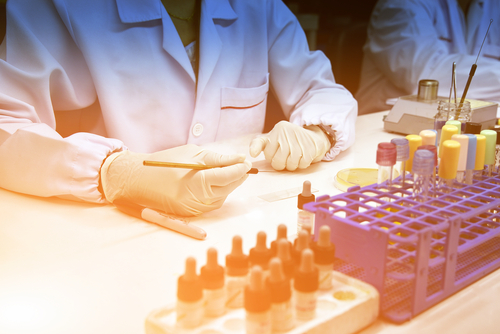#AAN2018 — NurOwn’s Beneficial Effect in ALS Sustained by miRNA Regulation, Study Suggests

NurOwn, a cell therapy being developed by Brainstorm Cell Therapeutics, is able to maintain its therapeutic effects by significantly regulating the levels of a type of small RNA molecule linked to amyotrophic lateral sclerosis (ALS), a study suggests.
According to data from a Phase 2 trial, the investigative therapy can sustain immunomodulatory and protective effects by regulating miRNA levels in the cerebral spinal fluid of ALS patients.
These findings are going to be presented by the company at the 2018 Annual Meeting of the American Academy of Neurology April 21-27 in Los Angeles. The presentation, “Modulation of CFS miRNAs in ALS Phase 2 Study Participants Treated with MSC-NTFCells (Nurown),” will be made during the Advances in Amyotrophic Lateral Sclerosis session. It was recently published in the journal Neurology.
NurOwn is an autologous stem cell therapy that takes a patient’s own mesenchymal stem cells (MSCs) to promote nerve cell-supporting mechanisms for transplant back into the patient.
These stem cells can produce signaling molecules that regulate the activity of surrounding cells. But they can also secrete neurotrophic factors (NTF) that support the growth, survival, and differentiation of nerve cells. These features support the hypothesis that MSCs could be potential regulators of neurodegeneration, while protecting neurons from damage.
The Phase 2 trial (NCT02017912) evaluated the safety and effectiveness of NurOwn in 48 patients with early-stage ALS. Results showed that the treatment could significantly slow functional decline compared with placebo, most notably in patients who showed faster decline during the screening period.
More recently, researchers investigated the potential of NurOwn to regulate cellular responses in these trial participants by evaluating microRNA levels in samples of their cerebral spinal fluid.
MicroRNAs (miRNAs) are small non-coding RNAs that regulate a wide variety of cellular processes, but they can also be used to detect deregulated mechanisms. Several miRNAs have been linked to ALS and proposed as biomarkers of disease development and progression.
Researchers found that patients who were treated with NurOwn had increased levels of miR-34a, miR-132, miR-19, miR-376a, and miR-146a-5p molecules — which are highly expressed in NurOwn cells. This effect was found to be sustained for up to two weeks after treatment. Patients who did not respond to treatment were found to have lower levels of miR-34a, miR-376a, and miR-132 at the beginning of the study, compared with patients who did respond.
These results suggest that NurOwn cells hold “continued secretory activity” that is “associated with immunomodulatory and neuroprotective effects” via regulation of miRNAs, the researchers wrote.
NurOwn is currently being evaluated in a randomized, multicenter Phase 3 trial (NCT03280056) in the U.S. and Canada that is enrolling now. The study is recruiting up to 200 patients, each being given three treatment or placebo doses.
“We are committed to continuing to understand the value that NurOwn brings to ALS through innovative clinical and scientific evaluation, and to advance the Phase 3 pivotal study to bring a meaningful solution to ALS patients,” Chaim Lebovits, CEO of BrainStorm, said in a press release.






